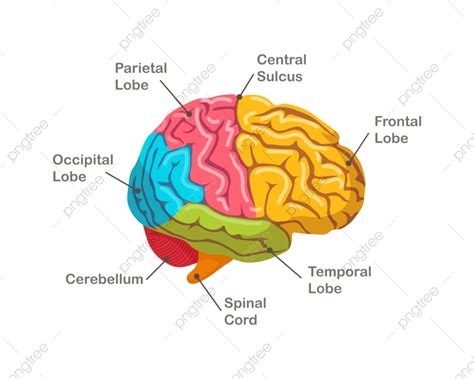How to optimize men’s sleep for peak energy, recovery, and cognitive performance?

The Foundation of Male Vitality: Why Sleep Matters
For men aspiring to achieve peak physical, mental, and emotional performance, sleep isn’t a luxury; it’s a fundamental pillar. Far beyond simply resting, quality sleep orchestrates a symphony of vital physiological processes, from hormone regulation and muscle repair to memory consolidation and mood stabilization. Inadequate sleep, conversely, can lead to diminished energy levels, impaired recovery from exercise, reduced cognitive function, and even long-term health issues like decreased testosterone, increased risk of chronic diseases, and compromised immune function.
Optimizing sleep is a non-negotiable step for any man serious about maximizing his potential. This guide will delve into actionable strategies to transform your sleep, ensuring you wake up refreshed, resilient, and ready to conquer the day.

Understanding the Science of Quality Sleep
To optimize sleep, it’s essential to understand its various stages. A full sleep cycle, lasting roughly 90 minutes, consists of Non-Rapid Eye Movement (NREM) sleep, divided into three stages (N1, N2, N3 – also known as deep sleep), and Rapid Eye Movement (REM) sleep. Each stage plays a critical role:
- NREM Stage N3 (Deep Sleep): This is the most restorative stage, crucial for physical recovery, muscle repair, immune system strengthening, and the release of growth hormone. Men, especially those engaged in intense physical activity, need ample deep sleep for robust recovery.
- REM Sleep: Essential for cognitive functions, including memory consolidation, learning, and emotional regulation. Dreams predominantly occur during REM sleep, aiding in processing emotions and experiences.
Consistently getting a full night’s sleep that allows you to cycle through these stages multiple times is paramount for holistic well-being.

Pillars of Optimal Sleep for Men
Establish a Consistent Sleep Schedule
Your body thrives on routine. Going to bed and waking up at roughly the same time every day, even on weekends, helps to regulate your circadian rhythm – your internal 24-hour clock. Consistency signals to your body when to produce melatonin (the sleep hormone) and when to prepare for wakefulness, leading to easier transitions into and out of sleep.
Craft Your Ideal Sleep Environment
Your bedroom should be a sanctuary dedicated to rest. Optimize it for sleep with these considerations:
- Darkness: Block out all light. Use blackout curtains, an eye mask, or ensure no light sources (even small LEDs) are visible. Light interferes with melatonin production.
- Quiet: Minimize noise distractions. Earplugs, a white noise machine, or a fan can help mask disruptive sounds.
- Cool Temperature: The ideal sleep temperature is generally between 60-67°F (15-19°C). A cooler environment signals to your body that it’s time to rest.
- Comfort: Invest in a supportive mattress, comfortable pillows, and breathable bedding.

Optimize Your Pre-Sleep Routine
Just as you have a morning routine, an evening wind-down ritual signals to your body that it’s time to prepare for sleep. Aim for 30-60 minutes before bed:
- Avoid Screens: The blue light emitted by phones, tablets, and computers can suppress melatonin. Put devices away at least an hour before bed.
- Relaxation Techniques: Read a book (physical, not e-reader), listen to calming music, meditate, stretch lightly, or take a warm bath or shower.
- Dim Lights: Lower the lighting in your home to mimic sunset, further encouraging melatonin release.
Lifestyle Factors for Enhanced Sleep
Nutrition, Hydration, and Stimulants
- Limit Caffeine and Alcohol: Avoid caffeine in the late afternoon and evening, as its stimulating effects can last for hours. Alcohol may initially make you feel drowsy, but it disrupts sleep architecture, particularly REM sleep, leading to fragmented and less restorative rest.
- Avoid Heavy Meals Before Bed: Give your body at least 2-3 hours to digest a large meal before lying down to prevent discomfort and indigestion.
- Stay Hydrated: Dehydration can impact sleep, but limit fluids close to bedtime to avoid nighttime bathroom trips.

Strategic Exercise and Movement
Regular physical activity is a powerful sleep aid, improving both sleep quality and duration. However, timing is key. Intense workouts too close to bedtime can elevate core body temperature and stimulate the nervous system, making it harder to fall asleep. Aim to complete vigorous exercise at least 3-4 hours before bed. Morning or early afternoon workouts are often ideal for sleep promotion.
Mastering Stress and Mental Well-being
Chronic stress and anxiety are major disruptors of sleep. Incorporate stress-reduction techniques into your daily routine:
- Mindfulness and Meditation: Even 10-15 minutes a day can significantly reduce stress levels.
- Journaling: Writing down worries or to-do lists before bed can help clear your mind.
- Deep Breathing Exercises: Practice slow, diaphragmatic breathing to calm your nervous system.
Tailoring Sleep for Male Performance and Recovery
Men often have unique sleep considerations tied to their physiology and lifestyle. Optimal sleep is crucial for maintaining healthy testosterone levels, which are vital for energy, libido, muscle mass, and bone density. Furthermore, men engaged in strength training or demanding physical jobs rely heavily on deep sleep for muscle protein synthesis and recovery from micro-traumas. Prioritizing consistent, high-quality sleep directly supports hormonal balance and accelerates physical repair, translating to better athletic performance and a more robust physique.

Tracking, Adjusting, and Seeking Professional Help
Consider using a sleep tracker (wearable or app) to gain insights into your sleep patterns, including duration, sleep stages, and disturbances. While not perfectly accurate, they can highlight trends and help you identify areas for improvement. Pay attention to how you feel each morning – your energy levels, mood, and cognitive sharpness are often the best indicators of sleep quality.
If despite implementing these strategies, you consistently struggle with sleep, experience excessive daytime sleepiness, or suspect a sleep disorder like sleep apnea or chronic insomnia, consult a healthcare professional. A sleep specialist can provide diagnosis and personalized treatment plans.
Conclusion
Optimizing men’s sleep is a holistic endeavor that involves consistent routines, an ideal environment, smart lifestyle choices, and effective stress management. By making sleep a non-negotiable priority, you’re not just resting; you’re investing in your energy, accelerating your recovery, sharpening your cognitive edge, and laying the groundwork for a healthier, more productive life. Start implementing these strategies today and unlock your peak potential.









